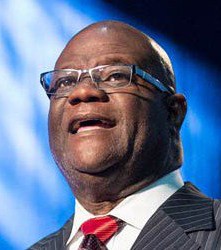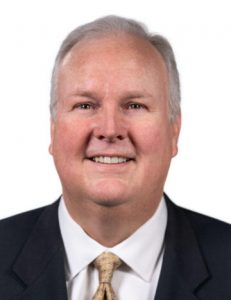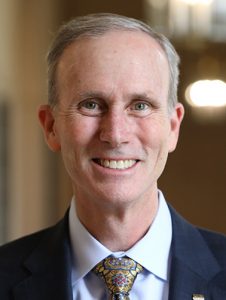An email pen pal wrote me this weekend to point out the irony of the Southern Baptist Convention’s actions last week against women in church leadership: “Do we realize a 20-year-old boy in college can pastor a Baptist church? But a well-educated woman with 40 years pastoral and preaching experience is shown the door by Baptists? This vote was so disrespectful and cruel. Neither God nor the Bible brought about this vote.”
Profound wisdom there on several fronts.
I have trouble finding much distance between the SBC and the Taliban when it comes to women: No need to educate women for roles they can’t fill.
“This is not about biblical authority; it is about biblical interpretation.”
When Al Mohler stood before convention messengers — twice — and excitedly warned that excluding women from church leadership is about “biblical authority,” he was flat-out wrong. This is not about biblical authority; it is about biblical interpretation.
Those are two very different things.

Rick Warren addresses messengers to the 2023 SBC annual meeting in New Orleans.
The Bible is not “clear” on the complementarian view of women in ministry. As Rick Warren has pointed out, the Bible is clear on the command for women and men alike to spread the gospel to all people. A reminder, dear Southern Baptists, Lottie Moon was not sent to China under the authority of a male overseer at her side. Nor was she only teaching women and children.
One of the most common questions I’ve been asked over the past week is why SBC leaders would take such an off-putting stance on women when they know it will drive more people away from the church — when numbers already are declining.
My answer is simple: Because they do not care.
They do not care because the theology driving the far right of the SBC today is Calvinism. Calvinism teaches that God has preordained who will be saved and who will be damned, and all the “elect” will be saved by God’s irresistible grace anyway. The only reason missionaries are needed is to round up the elect, which apparently an omnipotent God needs some help with.
Rick Warren is driven by old-fashioned, warm-hearted Baptist evangelism. He preaches and believes the “whosoever will may come” of the gospel. Al Mohler is driven by old-fashioned, narrow-minded Calvinism. He preaches and believes doctrinal purity is more important than leading people to a faithful relationship to Jesus Christ.
The drive to remove women from church leadership — and do understand, this is not just about women preaching — is a quest for doctrinal purity above all else. That’s why there can be no compromise.
“Today’s SBC has more in common with Jonathan Edwards than Billy Graham.”
Today’s SBC has more in common with Jonathan Edwards than Billy Graham.
What happens next? That’s the interesting part. We’re already seeing the answer. Churches are leaving the SBC. More churches will leave the SBC over the next year. Even more churches will leave the following year after the constitutional amendment is ratified in 2024. Other churches will be kicked out.

Dwight McKissic
Dwight McKissic, the outspoken pastor of Cornerstone Baptist Church in Arlington, Texas, has threatened for years to leave the SBC. Now he — and they — are finally gone. They’re done with the racism and misogyny.
McKissic announced on social media his church will identity only with the National Baptist Convention — one of the historic Black Baptist bodies — and the Baptist General Convention of Texas.
Black Baptists have a long history of affirming women in various roles of ministry, even if not in senior pastor roles. Simply put: You can’t do Black church without women in leadership. And yet the SBC wants to attract more Black churches. Hmmm.
My advice to Pastor Mac is to be sure what he’s getting into with the BGCT, which, once upon a time, was well-known for supporting women in ministry but today seems to be more concerned about its own conservative flank.
Just last month, Interim Executive Director Craig Christina appeared to leave lots of wiggle room on this subject in his report to the BGCT Executive Board.
Below is the verbatim report given by the BGCT’s own news office:
In his report Monday evening to the Executive Board, Craig Christina, associate executive director and acting executive director, reiterated Texas Baptists’ historic stance on women in ministry. Noting “numerous questions” had been received in recent months on the matter, Christina reviewed the history of statements made by messengers at Texas Baptists annual meetings in 1998 and 2021, and asked: “So, what does this mean for us today?”

Craig Christina
“We have been conservative, evangelical, orthodox Baptists for over 100 years, and we will continue to be so into the future,” Christina said. “Texas Baptist churches have spoken and continue to speak for themselves on the issue of women in ministry or women in the role of pastor. At Texas Baptists, conformity over the role of women in the church is neither a test of fellowship, nor a condition of cooperation.
“We neither insist on uniform practices or ministry titles, nor do we compel the conscience of any Baptist to adhere to the conclusions of another on this issue,” Christina said. “Of the theological issues we consider worthy of defining harmonious cooperation in the BGCT, women in ministry is simply not among them. We remain committed to advancing the gospel through the GC2 movement to share Christ and show love until all people have the opportunity to say, ‘yes,’ to Jesus.
“So brothers and sisters, let us not grow weary and let us not be distracted by tertiary issues. Too much is at stake. We are stronger together, and we have a state and a world to reach for Jesus Christ.”
Compare this to a statement published by the Baptist General Association of Virginia’s executive office last week in response to the SBC actions:
Baptist General Association of Virginia is a missionary movement unleashing the power of the resurrected Christ through the local church for the renewal of all things. As such, we reaffirm our heritage that equally values churches from a wide range of faithful positions. We believe that we have greater influence for Christ together than we could separately.
BGAV upholds the historical Baptist distinctive of the autonomy of the local church. The ordination of women and how they shall serve is a local church matter. The autonomy of the local congregation and the priesthood of believers are the criteria by which BGAV represents churches. We bless churches to prayerfully discern their stance on women in pastoral ministry, fostering a respectful space for diverse perspectives. BGAV affirms each church’s authority to ordain women if they discern this as part of their faith journey.
The proclamation of the gospel of Jesus Christ is our priority. Virginia Baptists have historically been gospel centric. BGAV recognizes that the Holy Spirit bestows gifts without regard to gender. Both women and men are seen as vessels through which the Spirit works, and the Spirit equips all believers for myriad ministries including the role of pastor within the church. This basic understanding affirms the inherent worth and potential of all followers of Christ.
Whether churches choose to ordain women or not, BGAV values the unity of the body of Christ and the collective mission that can be achieved when churches work together. BGAV emphasizes the importance of collaboration and mutual support for the greater purpose of advancing the Kingdom of God. BGAV believes that when Baptist churches unite, we can accomplish more for the Kingdom. Be assured that the Executive Office and the Executive Board value and honor all BGAV churches.
Do you see the difference? The Texas Baptist leader appears to tolerate women in ministry but acknowledges many churches would not agree, while the Virginia Baptist leaders celebrate women in ministry but acknowledge not everyone may agree.
Previous administrations of BGCT leaders — notably Charles Wade and Randell Everett — were emphatic in their embrace of women in ministry.
“The world is too lost and too broken to tell those God has called and gifted what they cannot do.”
Wade, for example, once said: “The world is too lost and too broken to tell those God has called and gifted what they cannot do. Set people free and God will use them as he will. It is the Bible itself that gives of this vision and opens doors.”
That sounds a whole lot more like Rick Warren’s position than the current noncommittal statement from the BGCT leader. Apparently, it’s good enough now simply to find a denominational body that doesn’t expel churches for allowing women in ministry, even if not celebrating them. (BGCT is expelling churches, by the way, for not enforcing bans on LGBTQ inclusion.)

Todd Still
To his credit, Todd Still, dean of Baylor University’s Truett Seminary, offered a definitive statement over the weekend: “At Baylor’s Truett Theological Seminary, women are affirmed and encouraged in their callings and giftings. Our school exists to equip God-called people for gospel ministry in and alongside Christ’s Church by the power of the Holy Spirit.”
Here’s where some of the churches now pulling away from the SBC will find common ground with places like Truett Seminary and the BGCT: They allow or encourage women in ministry while taking a hard line against LGBTQ inclusion.
Another news flash here: Most churches leaving the SBC over the women’s issue will not join the Cooperative Baptist Fellowship or the Alliance of Baptists. Those two groups — earlier breakaways from the SBC and both strongly affirming of women in ministry — are perceived as too liberal on the gay issue.
“They will become part of the great migration toward functionally nondenominational Baptist churches.”
Apart from Virginia and Texas, there are going to be a lot of homeless Baptist churches now. Churches no longer welcome or comfortable in the SBC but also not comfortable anywhere else. They will become part of the great migration toward functionally nondenominational Baptist churches.
For 30 years, I have been captivated by a speech I heard Bill Leonard give somewhere in the distant fog. I remember him using a white board, on which he drew vertical columns labeled “Baptist” and “Methodist” and “Catholic” and “Lutheran” and such. These were the denominational silos of 20th century American religious life. People used to jump between them only rarely.
Then he drew horizontal lines across the same board and labeled them with issues such as “abortion” and “religious liberty” and “biblical authority” and “public education.” These were the emerging issues that would unite people across denominational lines and, in fact, become more important than denominational silos. The new world coming, he said in the 1990s, would be driven by issues and identity politics more than denominational identity.
We have witnessed that line-drawing come to life. It is the reality in which we currently live. Anti-abortion Roman Catholics and Southern Baptists have more in common than progressive Baptists have in common with Southern Baptists. Anti-LGBTQ Baptists have more in common with anti-LGBTQ Methodists … and so on.
The SBC’s latest actions are hugely important for a variety of reasons. See Rabbi Jeffrey Salkin’s excellent RNS column on why everyone should pay attention on a political and cultural level.
If nothing else, the breakup of the Southern Baptist Convention signals the further implosion of denominational identity in America. Bill Leonard was a prophet before his time: The horizontal lines now matter more than the vertical lines.

Mark Wingfield
Mark Wingfield serves as executive director and publisher of Baptist News Global. He is the author of the new book Honestly: Telling the Truth About the Bible and Ourselves.
Related articles:
Saddleback and Fern Creek churches face off against Al Mohler at SBC meeting
Female pastors: Appointed or apostate? Southern Baptists decide | Opinion by Melody Maxwell
Rick Warren apologizes to women for his previous views on church leadership
Anti-egalitarian forces make clean sweep at SBC annual meeting | Analysis by Mark Wingfield


